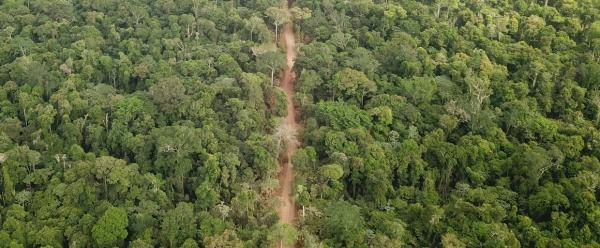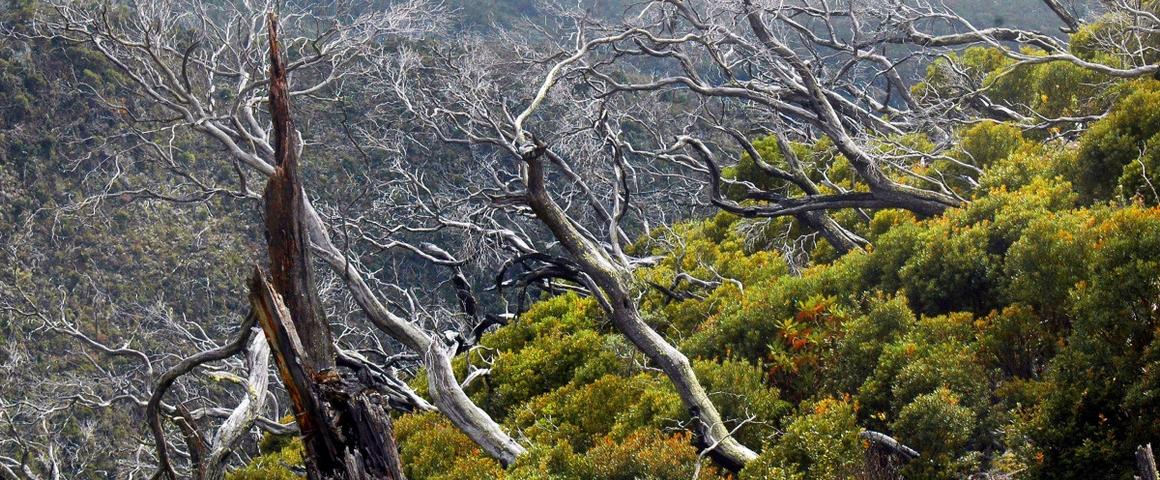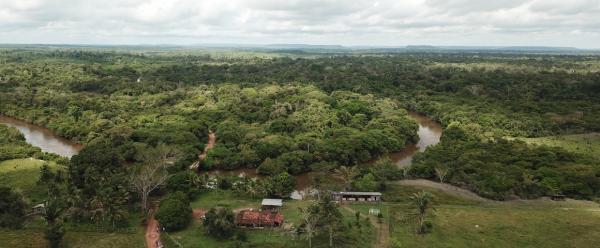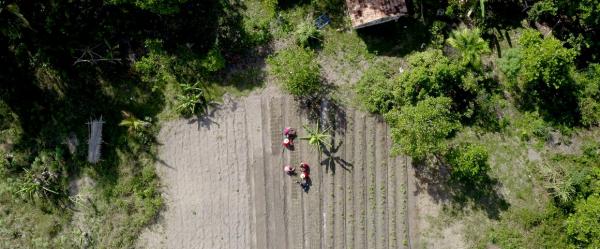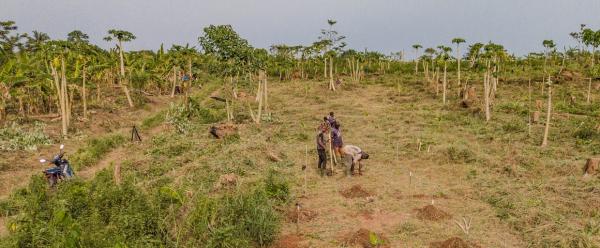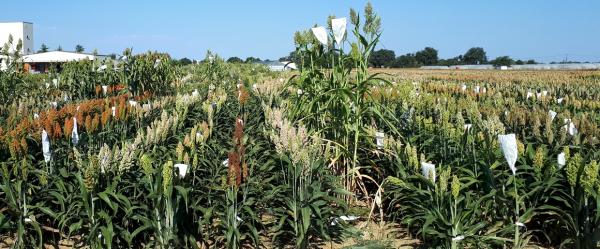During the Three Basins Summit, to be held in Brazzaville from 26 to 28 October, CIRAD and IRD will co-organize a side event focusing on the scientific support needed to achieve the objectives of the Partnerships for Forests, Nature and Climate (PFNCs). In a joint communication, the two French research organizations discuss the scientific challenges for the conservation of tropical forests. The researchers also insist on the fight against deforestation and illegal logging, and express the hope that this coalition will lead to clear commitments from participating states.
Improving research partnerships with tropical countries
French research is active in many countries in the three forest basins and benefits from solid, long-standing scientific partnership networks. Despite the considerable development of basic and applied research in the tropical countries in recent years, there is still a lack of financial and technical support for this research.
In December 2021,thanks to a network of foresters from all over the world, Ivorian scientists developed a new method for measuring tropical forest restoration. This type of initiative needs to be supported and accompanied in order to strengthen scientific collaborations between the global North and South, as well as South-South collaborations. Because of the importance of their partnerships, French research organizations can act as a bridge to boost these cooperations.
By way of example, CIRAD coordinates a network of observatories of “managed” tropical forests. The TmFO (Tropical managed Forests Observatory) includes 32 experimental sites located at the heart of the three basins. The observatories in the TmFO network are the only ones in the world to focus on forests that are already harvested and their renewal.
The megafires that have affected forests in recent years are a symptom of their vulnerability, caused by degradation and non-sustainable, generally illegal logging practices. In response to constant growth in demand, scientists are increasingly supporting a structure that is the only one of its kind in the world: the Tropical managed Forest Observatory (TmFO). The aim is to monitor the changes in managed tropical forests and at last build sustainable logging models.
Which scientific challenges should be prioritized?
The complexity of forest ecosystems calls first for greater interdisciplinarity. Understanding the water cycle or the carbon cycle involves a whole range of scientific disciplines that still struggle to collaborate. New ambitious approaches are therefore needed.
Efforts are also expected in terms of improving actual knowledge of tropical forest biodiversity. The inventory of tropical forest tree species is still very partial. Yet it is difficult to effectively protect something that is poorly understood. To address this challenge, scientists are particularly calling on participatory science.
The fight against deforestation and degradation remains a priority. Anticipating and reducing risks, but also proposing alternative development models for populations: territorial planning plays a key role in ensuring coherence between agricultural, forest and conservation policies.
These avenues are all based on the inclusion and participation of local actors: knowledge of local habitats and economies, contributions concerning possibilities for implementing technical innovations, commitments, etc. Research has shown on numerous occasions the key role played by local populations and is now building on this to develop appropriate projects.
Le projet TerrAmaz (9,5 M€) accompagne cinq territoires amazoniens pour construire des solutions innovantes en faveur de transitions agricoles durables et socialement inclusives, permettant de conserver les forêts et restaurer les terres dégradées. Financé par l'Agence Française de Développement (AFD), il s’inscrit dans les engagements de la France en faveur d’une Alliance internationale pour la conservation des Forêts Tropicales. Il associe le Cirad, ONFI et AVSF et leurs partenaires du Brésil, de Colombie, d’Equateur et du Pérou.
See the CIRAD-IRD statement
What are the three forest basins?
The “three basins” refer to the three zones in which the majority of the world’s humid tropical forests are currently located: the Amazon, the Congo Basin and the Borneo-Mekong Basin in Southeast Asia. These three regions alone are home to more than half of all known terrestrial plant and animal species, and some 350 million people depend directly on their resources.
